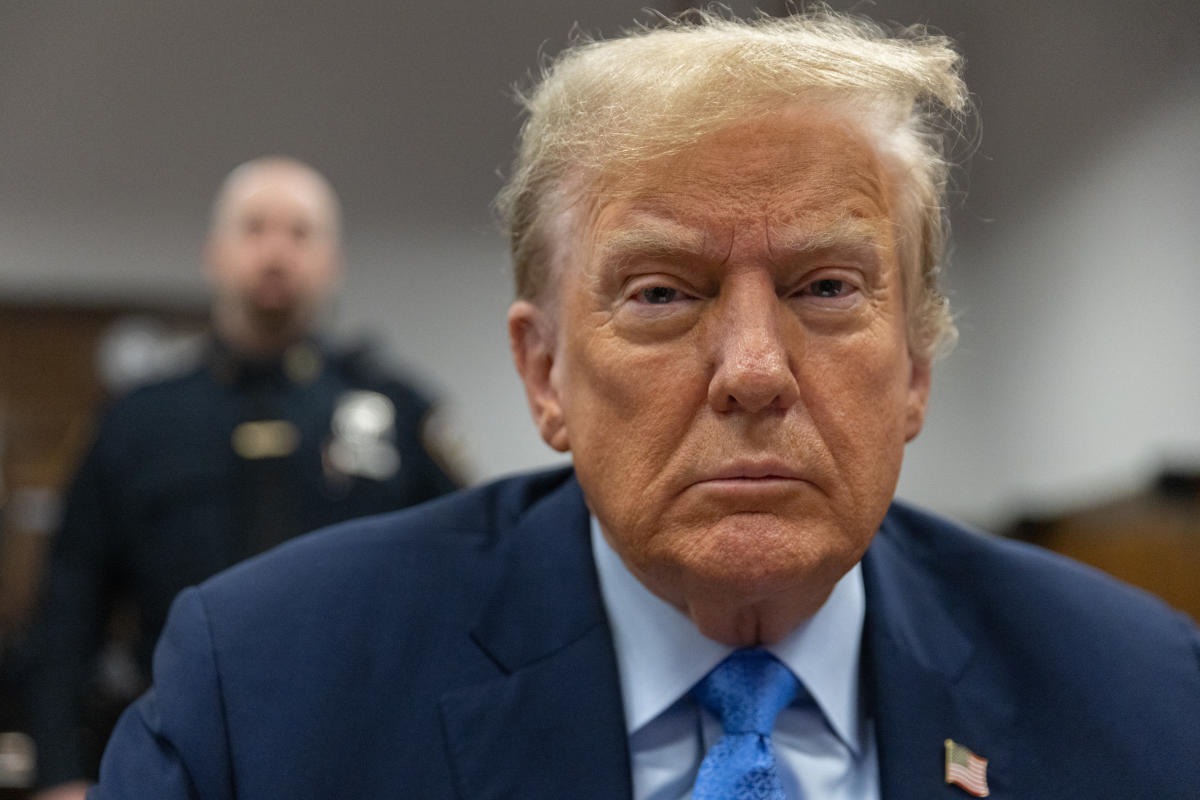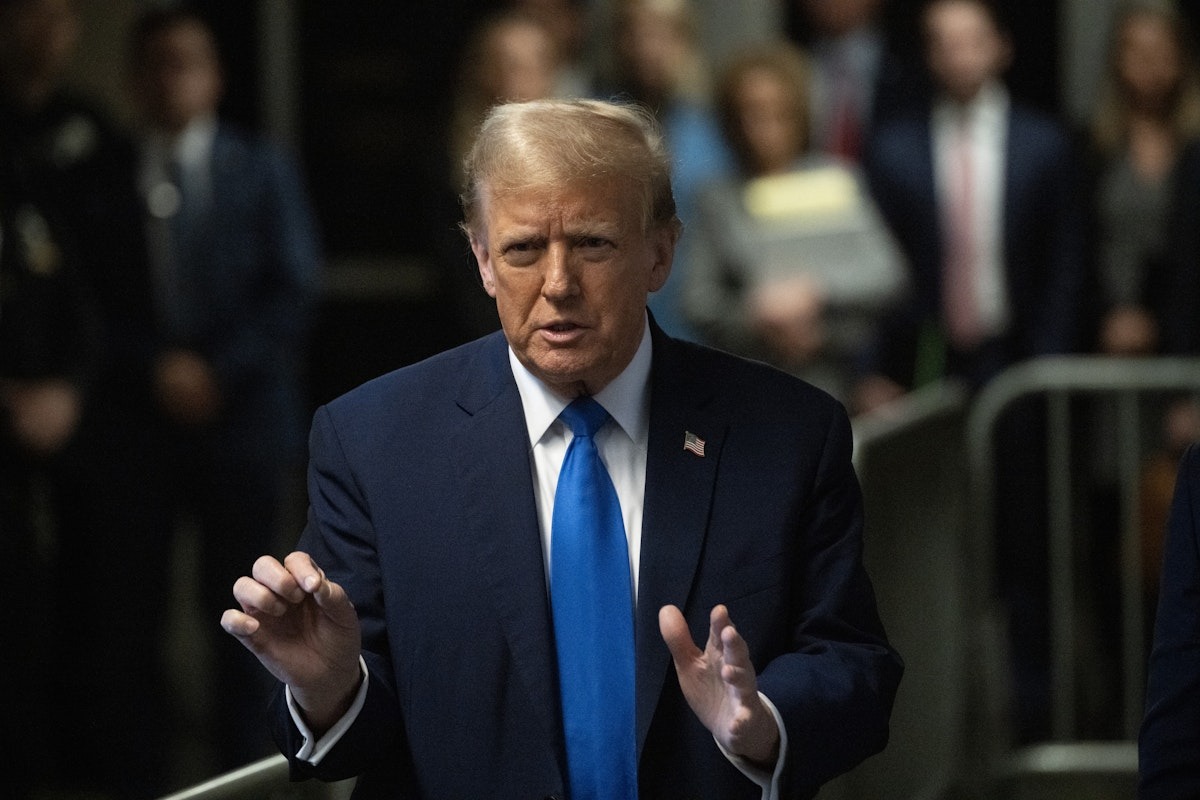The audio recording presented to jurors on Thursday lays bare a conversation between then-candidate Donald Trump and his former fixer, Michael Cohen, discussing a hush payment regarding Playboy model Karen McDougal’s allegations of an affair with Trump.
In the recording, Cohen mentions the amount and details of the payment, as well as the involvement of Trump Organization CFO Allen Weisselberg in setting up the transaction.
Another recording captures Cohen discussing a separate $130,000 payment to Stormy Daniels with her attorney, Keith Davidson. Cohen expresses Trump’s regret over the payment multiple times during the call.

Trump trial (Credits: Yahoo)
Prosecutors argue that these recordings demonstrate Trump’s direct involvement in efforts to suppress damaging stories about him. Trump faces charges of falsifying business records to evade campaign finance laws and conceal the payment to Daniels. Cohen, who confessed to his role in the scheme, received a three-year prison sentence in 2018.
Trump’s defense strategy focuses on discrediting Cohen, portraying him as a bitter individual seeking revenge for not receiving a job in the Trump administration. However, the existence of recordings poses a serious challenge to this defense tactic.
During cross-examination, Trump’s attorney, Emil Bove, attempted to undermine the credibility of the 2016 Trump-Cohen recording by suggesting possible tampering. Bove questioned the forensic data expert about the handling of the phone containing the recording, implying that prior acquisition by the FBI could have affected the data’s integrity.
This line of questioning plays into right-wing conspiracy theories that portray law enforcement agencies, including the FBI, as partisan entities. By insinuating that the FBI may have manipulated evidence to incriminate Trump, the defense seeks to sow doubt among jurors.

Donald J. Trump (Credits: Yahoo)
Legal analysts view this defense strategy as weak and desperate. Lisa Rubin, an MSNBC legal analyst, characterized the exchange as the “weirdest moment” of the testimony.
Former U.S. attorney Joyce Vance criticized Trump’s defense, calling the “planted evidence” defense a desperate attempt lacking credibility. Similarly, former federal prosecutor Andrew Weissmann dismissed the defense tactic as the last refuge of a scoundrel.
As the trial reveals, the effectiveness of Trump’s defense strategy and its impact on the jury’s verdict remain uncertain. However, the recordings present compelling evidence that may prove difficult for the defense to refute convincingly.























